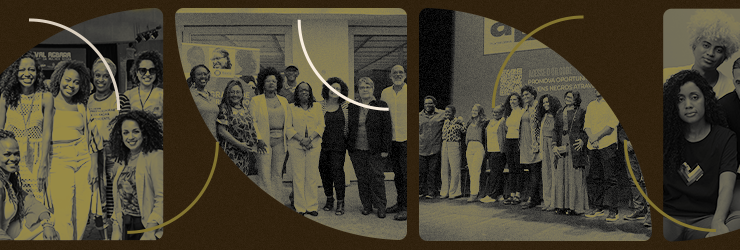A tax that taxes philanthropy ? This seems very strange, but this practice is still a reality in Brazil because of the ITCMD (Tax on Transmission Causa Mortis or Donation) . Now, a very important step is about to be taken in Congress so that civil society organizations are finally free from charges. In this blog post from Movimento Bem Maior, you will understand more about the exemption and why it is super important for the culture of donation.
Current scenario
The ITCMD is a state responsibility, that is, each government defines its standards. Therefore, the criteria and rules for applying this tax ended up being different throughout Brazilian territory. The rates also vary between states, but the maximum, set by the Senate, is 8%.
As the name suggests, the tax aims to transmit assets or rights left at the death of the owner to be distributed to heirs and also aims to transfer in cases of various donations .
Thus, it covers very different situations : the tax has the potential to fall on private donations (such as an apartment that is passed from father to son), but also to fall on contributions made to philanthropy (such as a donation made to an institution that works on social causes).
In other places in the world, there is usually different treatment . When analyzing the taxation of inheritances and donations in 75 countries, a study – which was published in 2019 by GIFE (Group of Institutes, Foundations and Companies) and Fundação Getúlio Vargas – observed that only our country, Croatia and South Korea South taxed private donations and contributions to civil society organizations without differentiating them.
Advocacy
The fact is that the current scenario of the Brazilian ITCMD represents a barrier that discourages the installation of a donation culture in Brazil. And organized civil society led in-depth discussions on several fronts, both at the state and federal level, to convince authorities of the need to change the legislation .
As a result of these mobilizations, some specific victories had already been achieved, as was the case in Rio de Janeiro, which exempted associations and foundations under private law that maintain activities with social objectives. The demand not to tax philanthropy has gained more and more strength in the country, and today we have the chance to approve a clear national rule through the Proposed Amendment to the Constitution No. 45/2019 , the PEC that implements the Tax Reform .
While a plan for a new tax system was being discussed in Brasília, several organizations spoke out about the importance of the ITCMD no longer reaching the field of private social investment. Meetings were held and the CSOs' suggestion was accepted by the Ministry of Finance, by deputies and incorporated into the text of the Proposed Amendment to the Constitution.
Approval in Congress
The Reform rapporteur, deputy Aguinaldo Ribeiro (PP-PB), pointed out this very important topic during the reading of the final report: “As for the ITCMD, exclusion from the impact on transmissions and donations to non-profit institutions for purposes of relevance public and social, including welfare and charitable organizations of religious entities and scientific and technological institutes, and carried out by them in achieving their social objectives, subject to the conditions established in complementary law”.
The Tax Reform was approved in a second vote in the Chamber of Deputies by 375 votes in favor, 113 against and three abstentions, in the early hours of July 7th. The PEC went to the Senate , where the matter will also need to be voted on.
Impacts on the sector
If confirmed, the exemption from this tax for civil society organizations will have a huge impact . It will help with the financial sustainability of CSOs and the strategic social action they carry out. With more resources, the work can be reinforced in search of social innovations and systemic transformation.
It is very important to have a national rule, with legal certainty, without the current bureaucracy and without the obstacles, which today are different across states. The long processes and the legal risk of taxation contribute to alienating social investors . Strengthening private social investment requires a regulatory environment that encourages and expands the culture of donation.
Giving exemption from ITCMD to social organizations means eliminating an obstacle that makes it difficult to increase donations in Brazil .



 ">
">
